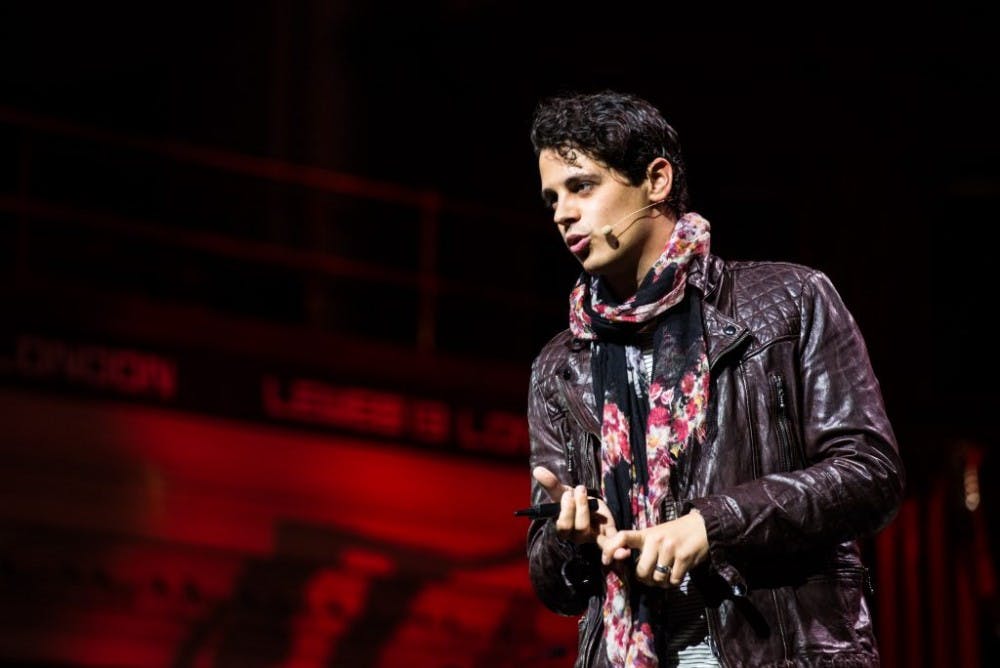The free speech debate is raging on campuses. Again. This time the think pieces stem from two events: the widely publicized canceled Milo Yiannopoulos event at UC Berkeley and conservative Charles Murray’s speech at Middlebury that was thrown into chaos by protesters.
The factions are the same as they have been for years: conservatives who agree with or at least want to hear speakers, leftists (typically anarchists and communists) who protest the event (using a mix of non-violent tactics, violent tactics and property destruction) and a group somewhere in the middle: liberals who vehemently disagree with the speaker but believe they should speak without protests.
The third group’s arguments usually sound like this: “I find [insert name]’s views abhorrent, but I believe in free speech” or, paraphrasing Voltaire, “I may disagree with [insert name], but I will defend their right to speak.” Wash, rinse, repeat every few months. However, these arguments fundamentally misunderstand protest as a tactic as well as the goals of leftists.
The speakers have not had their basic legal right to free speech threatened. I have seen no leftist call for the arrest or legal sanction of Yiannopoulos, Murray or any other speaker. Of course, there may be individual exceptions, but legal reprisal is not a goal of the movement.
At this point it is cliché, but legally “free speech” means freedom from legal consequences, not freedom from consequences in general. If someone is humming a song I don’t like in the library and I retort by drowning them out by loudly humming the Blue’s Clues theme song, I am not infringing on their right to free speech in any way.
Similarly, the tactic of protesting (either violently or nonviolently) is fundamentally a tactic to be employed outside the legal system, often when there are no legal avenues to achieve the movement’s goals.
Last year, there was a tongue-in-cheek protest on the Beach to allow students to eat and drink in the library. Legally, of course, we students had no standing: The school can ban food from the library as it sees fit. However, offering the rebuttal “but legally can the school can ban food” is obviously lacking an understanding of protest. Students were not calling for a law ensuring the right to eat food in libraries, but rather a specific policy change that infringes on no one’s legal rights.
Liberals tend to then shift to the argument about the concept of free speech rather than its legality. It may be perfectly legal to shut down a speaker, they say, but we should defend the concept of free speech by allowing anyone to speak. Yet again, liberals fundamentally misunderstand the goals of leftists. Appealing to leftists with the lofty concept of free speech will have no effect, as leftists, for the most part, do not agree with the liberal ideal of free speech (agree with them or not, this is indisputable).
Leftists are not fighting for lofty concepts; They are fighting a culture war and they want to win. Ironically, conservatives are much more like leftists than liberals in this regard. Take, for example, the shutdown of pro-Palestinian activism such as Fordham University’s ban on Students for Justice in Palestine or the still active California law barring communists from being teachers (funnily enough, I haven’t heard any liberal protest this law).
Conservatives and leftists don’t want to hear both sides or uphold idealistic concepts of the marketplace of ideas; They both want to win, to crush the other side. Liberals, on the other hand, will continue to write think pieces and lose elections.
Inevitably, soon another conservative speaker will be shut down on a college campus. The same essays and tweets and Facebook statuses will pop up; Only the names of the colleges and the speakers will be different. That famous Voltaire quote will be paraphrased ad nauseam across newspaper pages and social media. Conservatives will achieve electoral and legislative victories, and leftists will eke out culture war victories.
And liberals will be alone, misunderstanding the fundamentals of leftist movements and protest, staring wistfully out the window at their tattered “I’m With Her” sign, composing yet another Facebook status.
Emeline Armitage is a junior International Studies major from Cleveland.

















